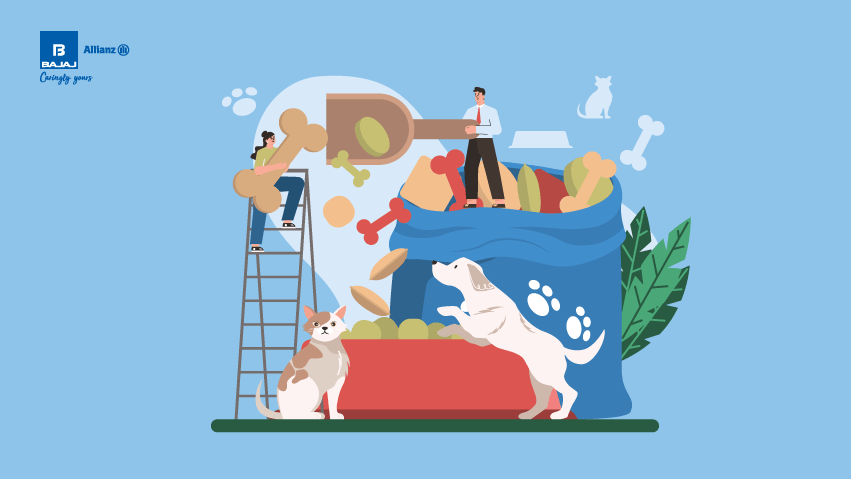Bringing a puppy home is incredibly exciting, full of cuddles, play, and tons of growing up. And just like human babies, puppies also have special needs when it comes to nutrition and growing healthy and strong. Feeding your puppy is crucial for their health and development. While it might seem daunting, choosing the right food and feeding schedule lays the foundation for a long and healthy life. During their first year, they need a diet rich in protein, vitamins, and minerals to help with bone growth, brain development, and a strong immune system. From the right types of puppy foods to understanding the nutritional needs at different stages of growth, this guide covers everything you need to ensure your puppy grows strong and healthy.
Understanding Puppy Nutrition Needs
Puppies require a balanced diet, rich in proteins, fats, carbohydrates, vitamins, and minerals. Unlike adult dogs, puppies need more calories and nutrients because they are growing rapidly. Proteins are essential for muscle development, fats provide energy and support cell function, carbohydrates fuel their active lifestyle, and vitamins and minerals are crucial for bone growth and overall health. Alongside nutrition, hydration is vital for your puppy's health. Always provide fresh, clean water. Puppies need constant access to water to help with food digestion and to maintain overall health.
Additionally, puppies typically need to eat three to four times a day. Establishing a regular feeding schedule, you help regulate their digestion and maintain consistent energy levels throughout the day. This also helps with house training, as puppies usually need to relieve themselves shortly after eating.
Keep track of your puppy's growth and health by scheduling regular check-ups with your vet. This ensures they are gaining weight at a healthy rate and allows for early detection and treatment of potential health issues.
Choosing the Best Puppy Food
Among the various brands, choosing the right puppy food is a bit challenging. The best puppy food should meet the nutritional standards set by the Bureau of Indian Standards (BIS). First and foremost it should have a high-quality protein source that could be chicken, other animal proteins, or fish. Puppy formulas should also contain Docosahexaenoic acid (DHA) for brain development and calcium to give the bones strength.
Homemade Puppy Food: Pros and Cons
While some owners choose to cook for their puppies, it's vital to consult with a vet to ensure the homemade diet is nutritionally complete. Homemade food offers control over the ingredients, which is great for puppies with allergies. However, it requires a good understanding of your puppy’s nutritional needs to avoid deficiencies. The advantages of choosing to give homemade puppy food include using the right kind of raw materials; as long as you source it, you can have peace of mind knowing your puppy is receiving the right nutrition.
Transitioning Foods
When changing your puppy’s diet, whether from wet to dry food or between different brands, it’s crucial to transition slowly over a week or more. Mix the new food with the old in gradually increasing proportions. This helps prevent any digestive distress and allows your puppy to adjust to the new food's taste and texture.
Common Feeding Mistakes
Overfeeding is a common issue, especially in puppies destined to be larger breeds. Excess weight can lead to joint problems and other health issues. Another mistake is feeding puppy-specific food too long. Transition to adult dog food based on breed size—small breeds at about 12 months, large breeds at about 24 months.
Puppy Training Treats and Biscuits
Puppy training treats are a necessary component of teaching new behaviours. Be sure to choose low-calorie, healthy treats. Many puppy biscuits have small to lower-fat varieties that you can give your puppy several times a day without the risk of weight gain. Treats should not exceed 10% of your puppy's daily caloric allowance.
Pet Insurance: Why Consider It?
Given that the unexpected can always occur, investing in pet insurance from Bajaj Allianz General Insurance Company helps manage any potential health-related expenses that could arise. It ensures that your puppy receives the best possible care without the immediate financial burden, covering everything from routine check-ups to emergency interventions.
FAQs
How often should you feed a puppy?
You should be feeding your puppies at least three to four times a day to support their fast growth and high-energy needs. Feeding small but frequently is the rule of thumb.
Can puppies eat adult dog food?
Puppies should not eat adult dog food until they reach maturity, as they need more nutrients found in puppy-formulated food.
Is wet or dry food better for puppies?
Both can be suitable, but wet food might be easier for younger puppies to eat, while dry food helps maintain dental health.
How do I know if my puppy is eating enough?
Monitor your puppy's weight and energy levels; consult your vet if you notice any sudden changes or concerns.
Why should I consider pet insurance for my puppy?
Pet insurance helps cover the costs of veterinary care, ensuring your puppy gets necessary treatments without financial strain.
*Standard T&C apply.
**Insurance is the subject matter of solicitation. For more details on benefits, exclusions, limitations, terms, and conditions, please read the sales brochure/policy wording carefully before concluding a sale.
***Disclaimer: The content on this page is generic and shared only for informational and explanatory purposes. It is based on several secondary sources on the internet and is subject to changes. Please consult an expert before making any related decisions.
****The information presented is not meant to be a substitute for medical advice. Any suggestions mentioned should be considered for general use only. For expert guidance on any health ailment or medical issue or any treatment/procedure, please consult a certified medical professional.
 Service Chat:
Service Chat: 

